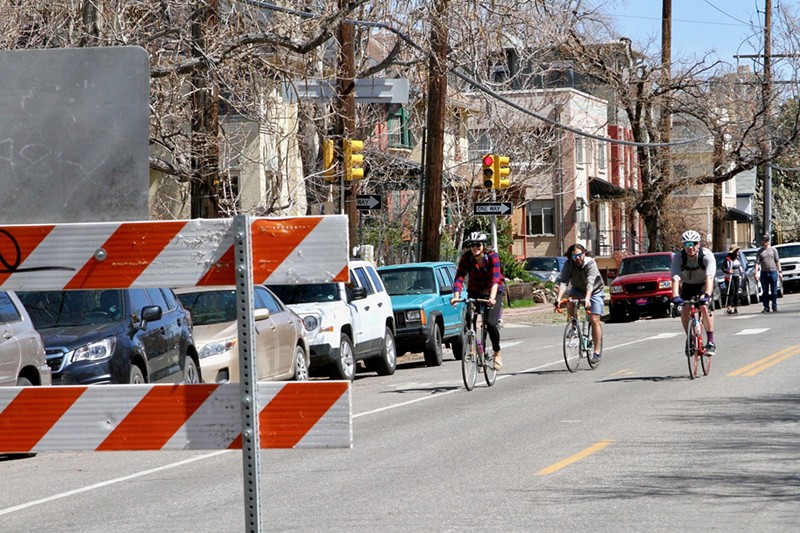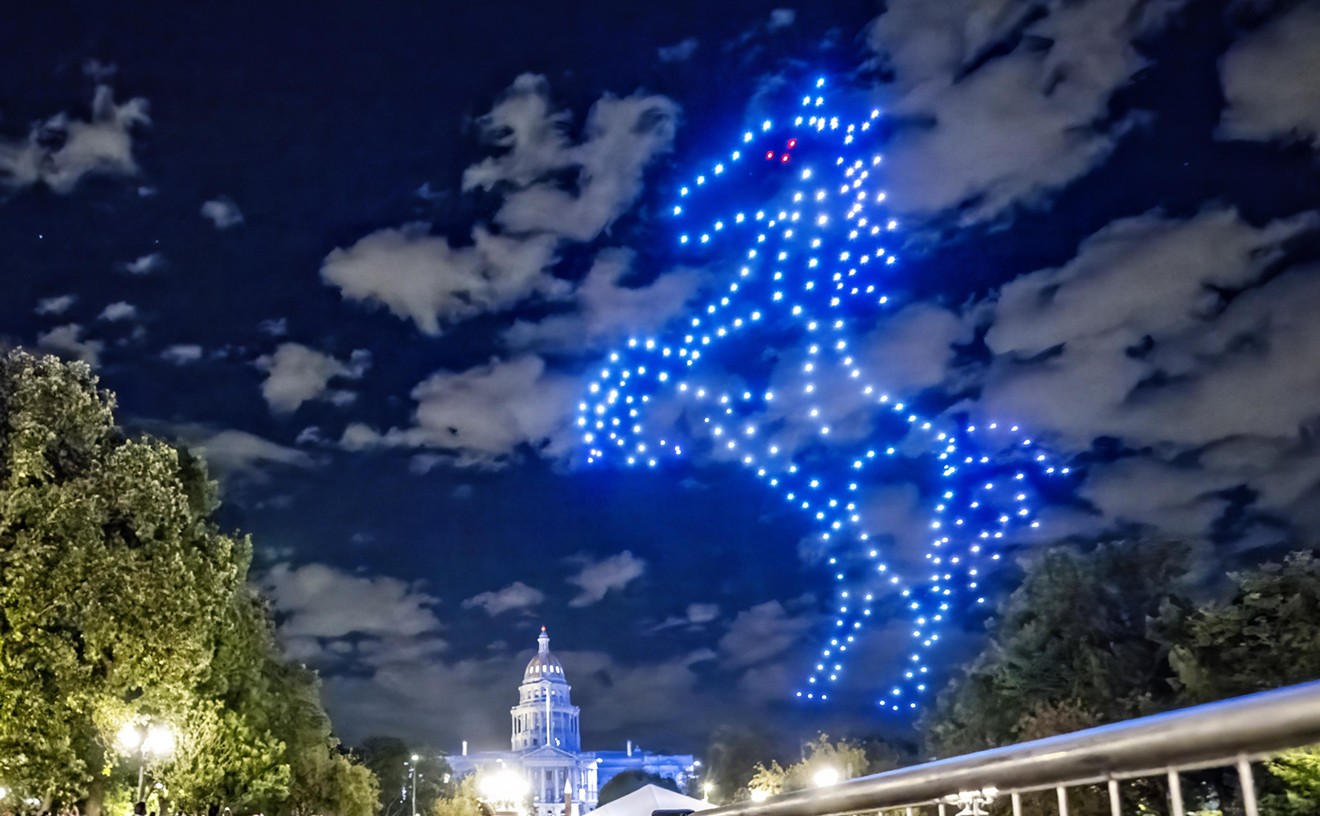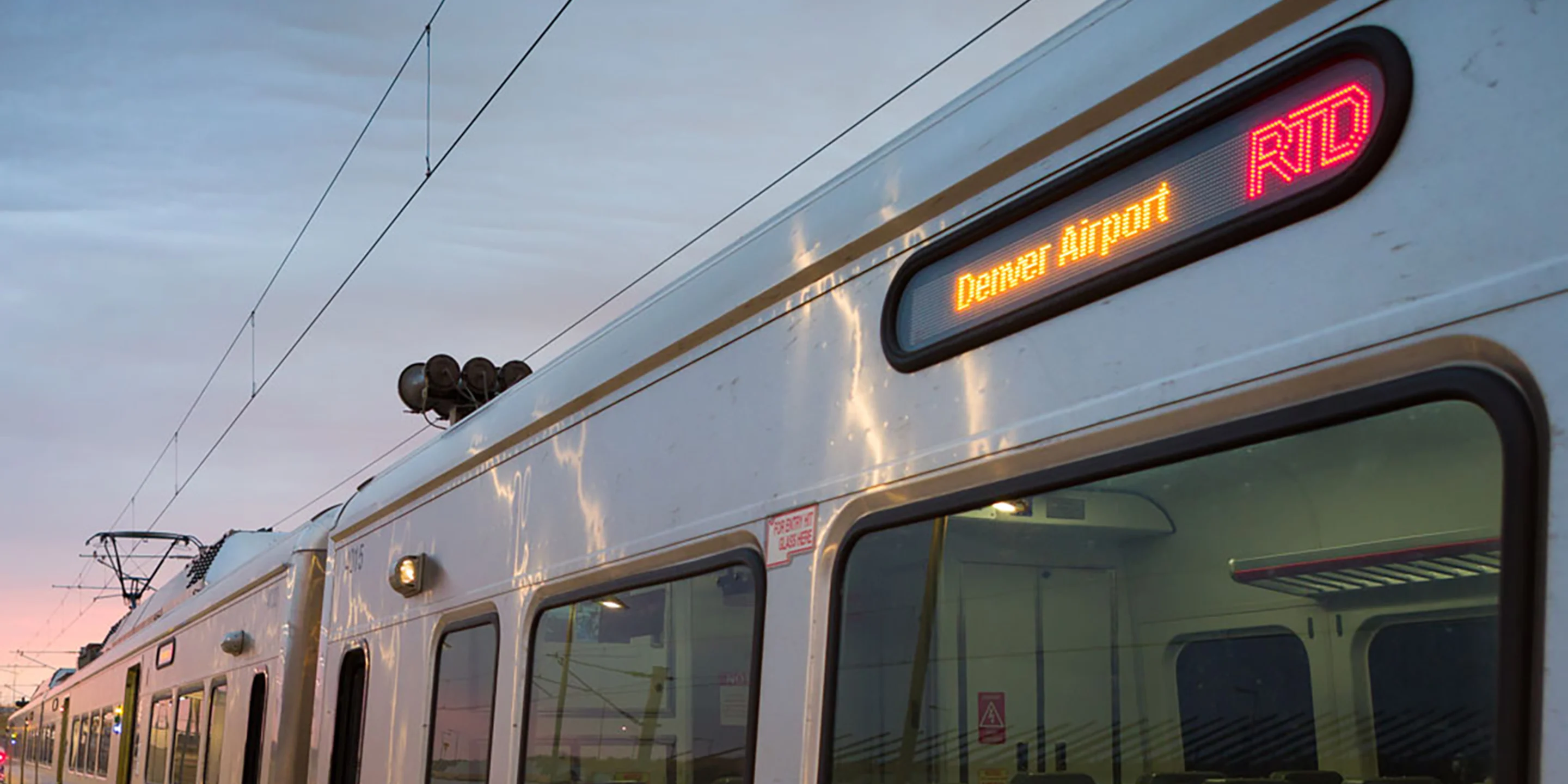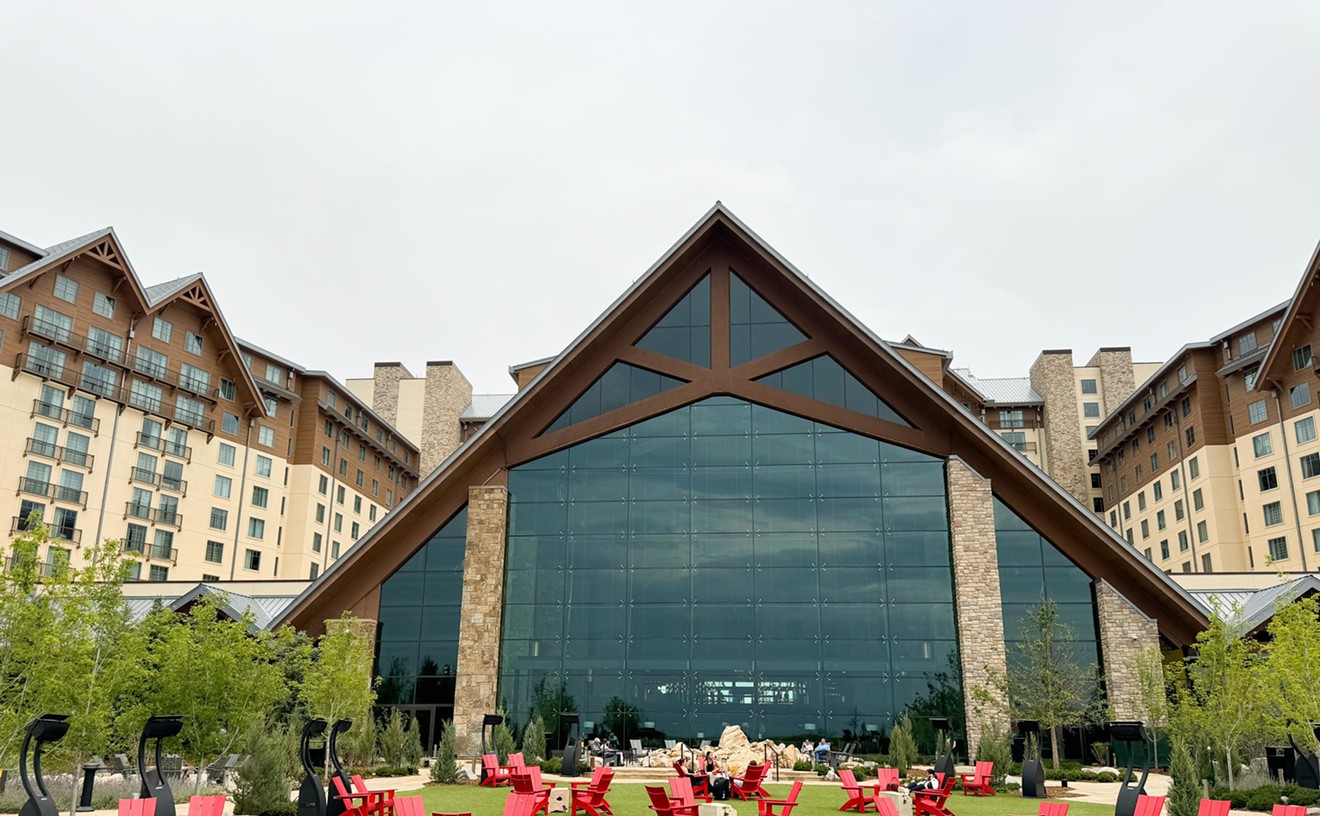Among the first cities in the country to open streets to pedestrians to slow the spread of COVID-19, Denver now has 15.9 miles of newly designated roadways, plus an additional 10.2 miles of roadways inside city parks that have been closed to vehicular traffic. This amounts to 26.1 miles of urban roadways that, because of COVID-19 and physical-distancing concerns, have been made increasingly friendly for mixed use.
This began on March 24, when the Denver Streets Partnership proposed the idea to Mayor Michael Hancock. On that same day, the organization launched a community survey of over 1,400 Denver residents to gauge the demand for changing how streets would be used. In response, the city designated the first open streets in parks on Friday, March 27. Then, on Tuesday, March 31, the DSP followed up with the mayor's office to share survey results about which streets residents thought would be good to open.
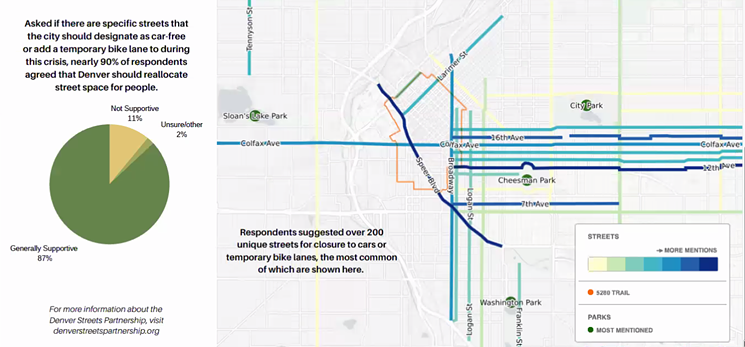
Data collected by DSP, showing Denverites response to an open and shared streets survey.
Denver Streets Partnership
Using this information, the city designated the first set of shared streets on Friday, April 3, and a second set of shared streets on the following Friday, April 10.
Since then, these open and shared streets have provided safe places for people to enjoy the outdoors while maintaining recommended physical distance.
Cars and trucks are banned from "open streets," but they are allowed to drive — at low speeds — on "shared streets," where they must yield to pedestrians and other recreational vehicles. Although the City of Denver has not enforced official speed limits for shared streets, many cities adhere to a standard of five miles per hour.
This is a win for the DSP, which has been advocating for people-friendly streets since 2016. Now the organization is using these street closures as an opportunity to prove the demand for an ongoing shared-streets program.
On Friday, April 24, DSP executive director Jill Locantore; board chair Danny Katz, who is also the director of CoPIRG; and board vice-chair Molly McKinley, a grassroots advocacy manager with Bicycle Colorado, presented data demonstrating Denver residents' increased use of the newly open and shared streets. The data was based on a pedestrian and cyclist counter placed on the corner of 16th Avenue and Williams Street on April 8 that gathered data on how people were using 16th, one of the city's recently designated shared streets.
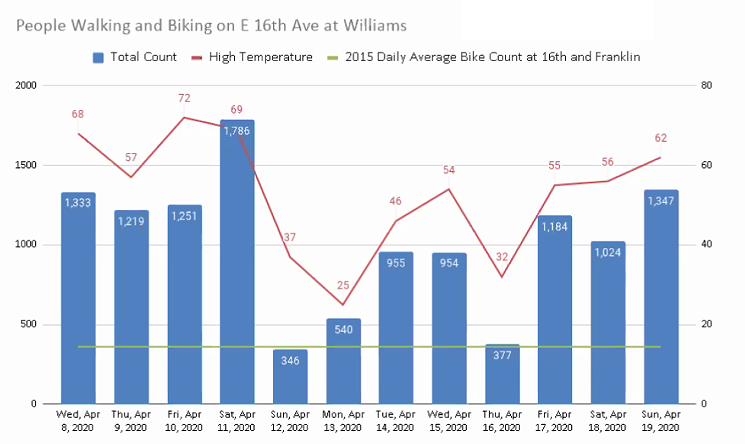
Data collected by Denver Streets Partnership, showing recreational usage habits on 16th Avenue.
Denver Streets Partnership
Though many are out enjoying these open and shared streets, some residents have also expressed concerns about those who aren't being mindful of physical distancing or wearing masks to help prevent the spread of COVID-19.
To help with this situation, says the DSP, the city has deployed ambassadors who are enforcing the new driver and pedestrian protocols, as well as Denver's physical-distancing requirements.
This time-lapse, showing the use of 16th Avenue throughout the day on Tuesday, April 21, depicts behavior and precautions being taken by those using the shared street.
16th Avenue April 21, 2020 from WalkDenver on Vimeo.
The DSP is excited by the preliminary data indicating a spike in shared- and open-streets usage and will continue to monitor how these spaces are working. The counter at 16th Avenue and Williams Street will be moved soon to collect more data, likely to somewhere on 11th Avenue, Locantore says.The organization hopes that with enough evidence, it can prove that the shared-streets program is a good idea that should be maintained once the city's stay-at-home order is lifted.

